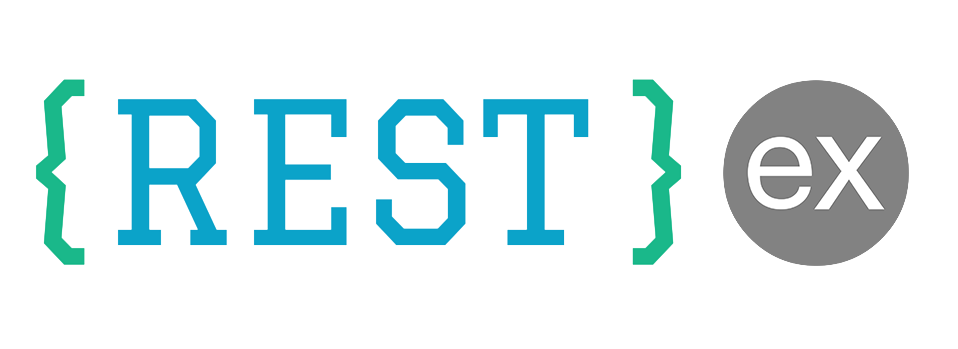
Security News
Risky Biz Podcast: Making Reachability Analysis Work in Real-World Codebases
This episode explores the hard problem of reachability analysis, from static analysis limits to handling dynamic languages and massive dependency trees.

Simple and minimalist API wrapper based on top of Expressjs with support mongoose & sequelizejs
Note To: For now I support only mongoose, very soon I'll come with sequelizejs
Requirements
You need Node.js ^7.10.1 installed and you'll need MongoDB installed and running.
const express = require("express"),
RestEx = require("restex");
let app = express()
//Restex connecting to mongodb using mongodb url
let restex = new RestEx(app, {
database: {
provider: "mongo",
conn: {
uri: "mongodb://localhost:27017/mydb"
}
},
controllersPath: path.resolve(__dirname + "/controllers"),//optional
modelsPath: path.resolve(__dirname + "/models"), //optional
routesPath: path.resolve(__dirname + "/routes"),//optinonal
middlewaresPath:path.resolve(__dirname+"/middleware.js") //optional
});
const express = require('express');
const mongoose = require('mongoose');
const RestEx = require("restex");
let app = express()
const mongoose = require('mongoose');
// Basic usage
mongoose.connect(connectionOptions);
const mongooseConnection = mongoose.connection;
// Advanced usage
const mongooseConnection = mongoose.createConnection(connectionOptions);
//Restex connecting to mongodb using mongodb url
let restex = new RestEx(app, {
database: {
provider: "mongo",
mongoose:require('mongoose'),
conn: {
mongooseConnection:mongooseConnection
}
},
controllersPath: path.resolve(__dirname + "/controllers"),
modelsPath: path.resolve(__dirname + "/models"),
routesPath: path.resolve(__dirname + "/routes"),
middlewaresPath: path.resolve(__dirname + "/middleware.js")
});
const express = require("express");
const Sequelize = require('sequelize');
const RestEx = require("restex");
let app = express()
//connect to sqlite database, you also need to in
const sequelize = new Sequelize('sqlite::memory:');
//Restex connecting to mongodb using mongodb url
let restex = new RestEx(app, {
database: {
provider : "sequelize",
Sequelize : Sequelize,
conn: sequelize
},
controllersPath: path.resolve(__dirname + "/controllers"),//optional
modelsPath: path.resolve(__dirname + "/models"), //optional
routesPath: path.resolve(__dirname + "/routes"),//optinonal
middlewaresPath:path.resolve(__dirname+"/middleware.js") //optional
});
path to controllers directory
default : controllers
@type {string}
path to models directory where you define mongoose schemas
default : models
@type {string}
path to routes directory where you define routes for app
default : routes
@type {string}
path to middleware file
default : middleware.js
@type {string}
//user.js
module.exports = function(mongoose) {
let modelName = 'users';
const Schema = mongoose.Schema;
var userSchema = new Schema({
name: String,
email: { type: String, required: true, unique: true },
password: { type: String, required: true },
createdAt: { type: Date },
updatedAt: Date
});
userSchema.pre("save", function(next) {
if (this.isNew) {
this.createdAt = new Date();
} else {
this.updatedAt = new Date();
}
})
userSchema.statics = {
collectionName:modelName // default file name >>user,
}
return userSchema
};
module.exports = function(sequelize,Sequelize){
const modelName = 'user'
const User = sequelize.define(modelName, {
name: { type: Sequelize.STRING },
email: { type: Sequelize.STRING }
});
User.statics = {
collectionName:modelName // default file name >>user,
}
return User;
}
//user.js
module.exports = function(router) {
router.post("/authenticate", "user#authenticate");
};
user >> controller
authenticate >> handler defined in controller
//users.js
const model_name = 'users'// make sure user schema exist in models dir
module.exports = function(restex){
let Dao = restex.dao(model_name)
let authenticate = function(req,res,next){
//Using Promise then & catch
Dao.get({email: req.body.email,password:req.body.password})
.then(user=>{
res.json(user)
}).catch(err=>{
return next(err)
})
// Using async/await
try{
let user = Dao.get({email: req.body.email,password: req.body.password})
}catch(e){
return next(e)
}
}
return {
authenticate
}
}
//middleware.js
module.exports = function(restex){
const middleware1 = function(req,res,next){
const auth = true;
if(auth){
return next()
}
next({status:401,message:'Unauthorized})
}
const middleware2 = function(req,res,next){
/paste your middleware snippet
next();
}
return {
middleware1,
middleware2
}
}
And you can directly use middleware name in routes file
const customMiddleware = function(req,res,next){
returen next()
}
router.get('/users','user#show',{middleware:['middleware1','middleware2',customMiddleware]}
Dao.get({email:email})).then(=>{}).catch(=>{})
Dao.getAll({company:<company>},{page:1,limit:10})
Dao.destroy({email:email}).then(=>{}).catch(=>{})
Dao.update({email:email},{name:'Scott Tiger'}).then(=>{}).catch(=>{})
Dao.add({email:'scott@tiger.com',name:'Scott Tiger'}
In some case if you need access mongoose Model directly.
const model_name = 'users'
module.exports = function(restex){
let UserModel = restex.model(model_name)
let authenticate = function(req , res,next){
UserModel.findOne({email:req.body.email,password:req.body.password}).lean()
.then(user=>{
res.json(user)
}).catch(err=>{
return next(err)
})
}
return {
authenticate
}
}
by default CRUD api will be created according to collectionName provided in mongoose Schema
userSchema.statics = {
collectionName:'users'
}
GET /users
DELETE /users/:id
PUT /users/:id
GET /users/:id
POST /users
To add middleware option for CRUD api ,add routeOption while defining mongoose model
userSchema.statics = {
collectionName:'users',
routeOption:{
middleware:['middleware1','middleware2']
}
}
git clone https://github.com/sunilmore690/restex-mongo-demo
cd restex-mongo-demo
npm install
npm start
git clone https://github.com/sunilmore690/restex-sequelize-demo
cd restex-sequelize-demo
npm install
npm start
FAQs
Nodejs framework built on top of expressjs,mongoose,sequelizejs
We found that restex demonstrated a not healthy version release cadence and project activity because the last version was released a year ago. It has 1 open source maintainer collaborating on the project.
Did you know?

Socket for GitHub automatically highlights issues in each pull request and monitors the health of all your open source dependencies. Discover the contents of your packages and block harmful activity before you install or update your dependencies.

Security News
This episode explores the hard problem of reachability analysis, from static analysis limits to handling dynamic languages and massive dependency trees.

Security News
/Research
Malicious Nx npm versions stole secrets and wallet info using AI CLI tools; Socket’s AI scanner detected the supply chain attack and flagged the malware.

Security News
CISA’s 2025 draft SBOM guidance adds new fields like hashes, licenses, and tool metadata to make software inventories more actionable.